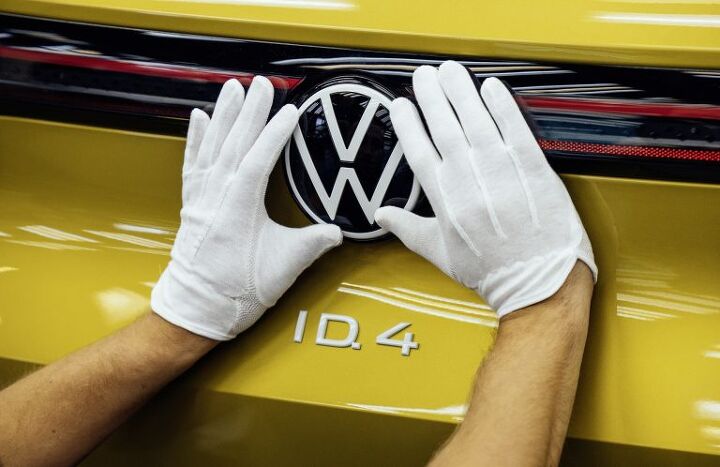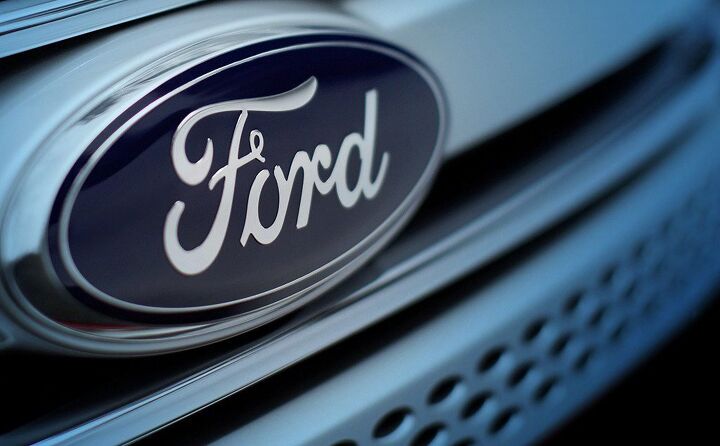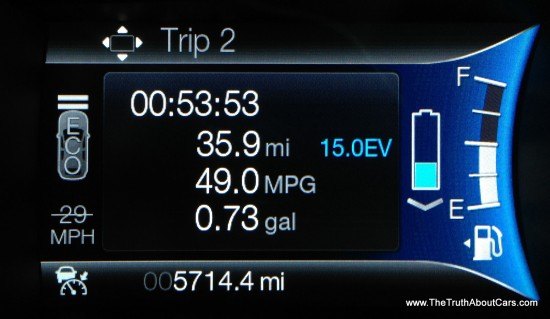#CarbonCredits
NHTSA Considers Increasing Fines for Emission Violations
The National Highway Traffic Safety Administration is considering increasing penalties for automakers that fail to meet fuel-efficiency requirements. Though this could be considered a restoration of older standards, depending upon your perspective.
Shortly before leaving office, President Donald Trump postponed a regulation from the last days of the Obama administration that would have effectively doubled fines for vehicle manufacturers failing to meet Corporate Average Fuel Economy (CAFE) requirements. Automakers had been complaining that the rule would have dramatically increased operating costs, suggesting that would trickle down to vehicle pricing and give manufacturers selling carbon credits an unfair advantage.
Volkswagen Reportedly Buying Carbon Credits From Tesla China
One of Volkswagen’s joint ventures in China has reportedly offered to purchase regulatory credits from Tesla in order to adhere to the regional environmental ascendancy. While VW may be doing everything in its power to swap over to an electric-vehicle manufacturer, it’s apparently falling short of government dictums.
FAW-Volkswagen — which shipped a little over 2 million automobiles in Asia last year — happened to be one of the biggest polluters of 2020 according to China’s Ministry of Industry and Information Technology. As it turns out, selling internal combustion vehicles consumers actually want to purchase in large quantities has some kind of environmental cost. Fortunately, it’s one regulators think can be solved by buying green credits from rivals who do all of their polluting during the initial assembly process and launder any future emissions through the national energy grid.
Tesla Demands Return to Obama Fueling Restrictions, Reasons Obvious
Tesla is demanding the reinstatement of a 2016 Obama regulation that more than doubles penalties for manufacturers who fail to adhere to fuel efficiency requirements. Gee, I wonder why it would do such a thing.
While focusing on the environment is an admirable endeavor, much of the discussion surrounding environmentalism on the corporate level really skirts around the periphery of Scamville. Elon Musk is no fool and understands that the more stringent regulations are enacted against his competitors, the more desperate they will be to buy up Tesla’s mountain of carbon credits. With a little help from the government, electric-vehicle companies can effectively bankrupt their more-traditional rivals while earning a nice payday for themselves. In fact, Tesla has only managed to become a profitable company because of this practice.
Honda Pooling With Tesla for EU Emissions Compliance
Honda Motor Co. will be accompanying Fiat Chrysler Automobiles in pooling its emissions with electric vehicle manufacturer Tesla in an attempt to adhere to CO2 limits mandated by the European Union. For 2020, the average emissions of all vehicles sold within the region must not exceed 95 grams of CO2 per kilometer. Companies failing to comply will be forced to pay the government sizable fines as it readies even higher targets for next year.
Over half of automakers planning to move product inside Europe next year are already assumed to fail however, resulting in a series of rushed hybrid/EV products, the obliteration of the diesel-powered passenger vehicles, and companies desperate to team up with the manufacturers that came in under the regulatory limits.
Facing Emission Fines, Ford Becomes Ravenous for Carbon Credits
Ford is joining the lengthening list of automakers that cannot adhere to European emissions mandates this year and is pursuing the popular option of simply buying carbon credits from rivals who managed to sell more than a few electrified vehicles.
Under the EU rules, manufacturers can “earn” carbon credits by selling more EVs. But legacy automakers were hamstrung all year by the pandemic and Ford is on the hook for a recall of its Kuga (Escape) PHEV. The Blue Oval recalled almost 21,000 examples of the plug-in hybrid in August, asking owners not to drive the crossover in its electric-only mode and to avoid charging the battery. While alarming in its own right, Ford said the recall effectively makes it impossible for it to meet 2020 EU emission quotas. It is now seeking partners for an “open emissions pool” and is hardly the only manufacturer doing this.
Buying Credit: FCA Says It Won't Need to Pay EU's CO2 Fines
Fiat Chrysler Automobiles CEO Mike Manley said the automaker will not have to pay fines for failing to meet the demands of tightening European air quality regulations. But that’s not because the automaker is actually going to adhere to them. FCA has been pretty open in explaining its willingness to simply endure fines or, conversely, buy enough carbon credits to circumvent the issue entirely. And, over the next two years, the latter strategy will be how it copes with the EU’s pollution mandates.
It’s not ignoring efficiency, however. FCA still plans on releasing an improved Fiat 500 BEV while expanding its hybrid offerings via the Jeep brand this year. It’s just easier (and cheaper) to buy credits in advance, knowing the manufacturer will need them.
Republicans Willing To Trade Bad Emissions For Better Safety
In its proposal Wednesday, U.S. House Republicans offered a carbon credit plan for automakers to trade tougher emissions standards for more safety technology. ( You know, the safety features that people are already willing to pay for.)
“This is a life-saving endeavor,” Rep. Fred Upton, R-Mich., said according to Reuters (via Automotive News). Trading pollution for safety, “incentivizes automakers to invest in new safety technology that will save more lives.”
The plan would relax future carbon dioxide requirements up to 9 percent in cars with advanced safety systems. An automotive lobby group said reducing crashes would reduce CO2 emissions.
EPA: Automakers Ahead Of 2025 CAFE MPG, CO2 Emissions Targets
Though automakers still have a decade to hit the 2025 CAFE target average of 54.5 mpg, the Environmental Protection Agency proclaimed in a just-released annual report that the automakers were ahead of schedule in meeting said target.






















Recent Comments